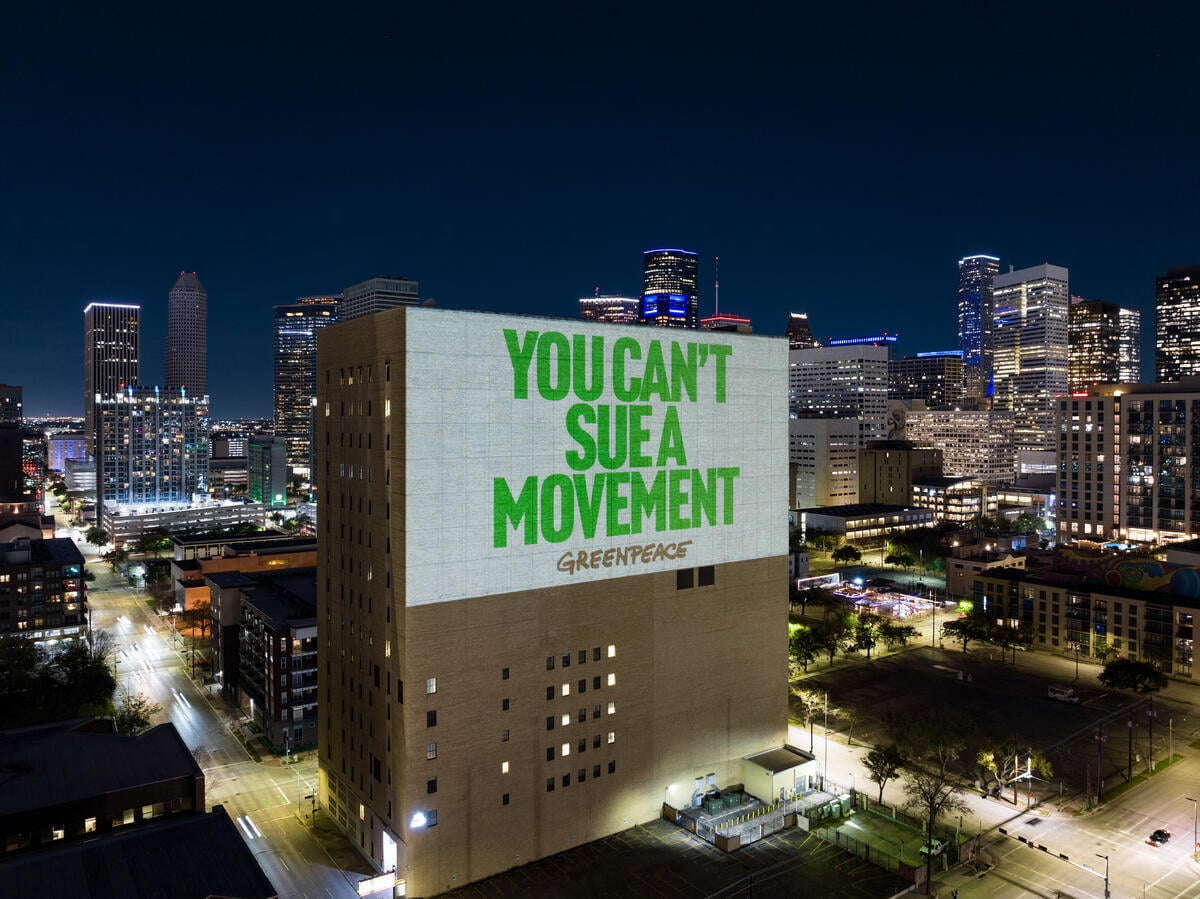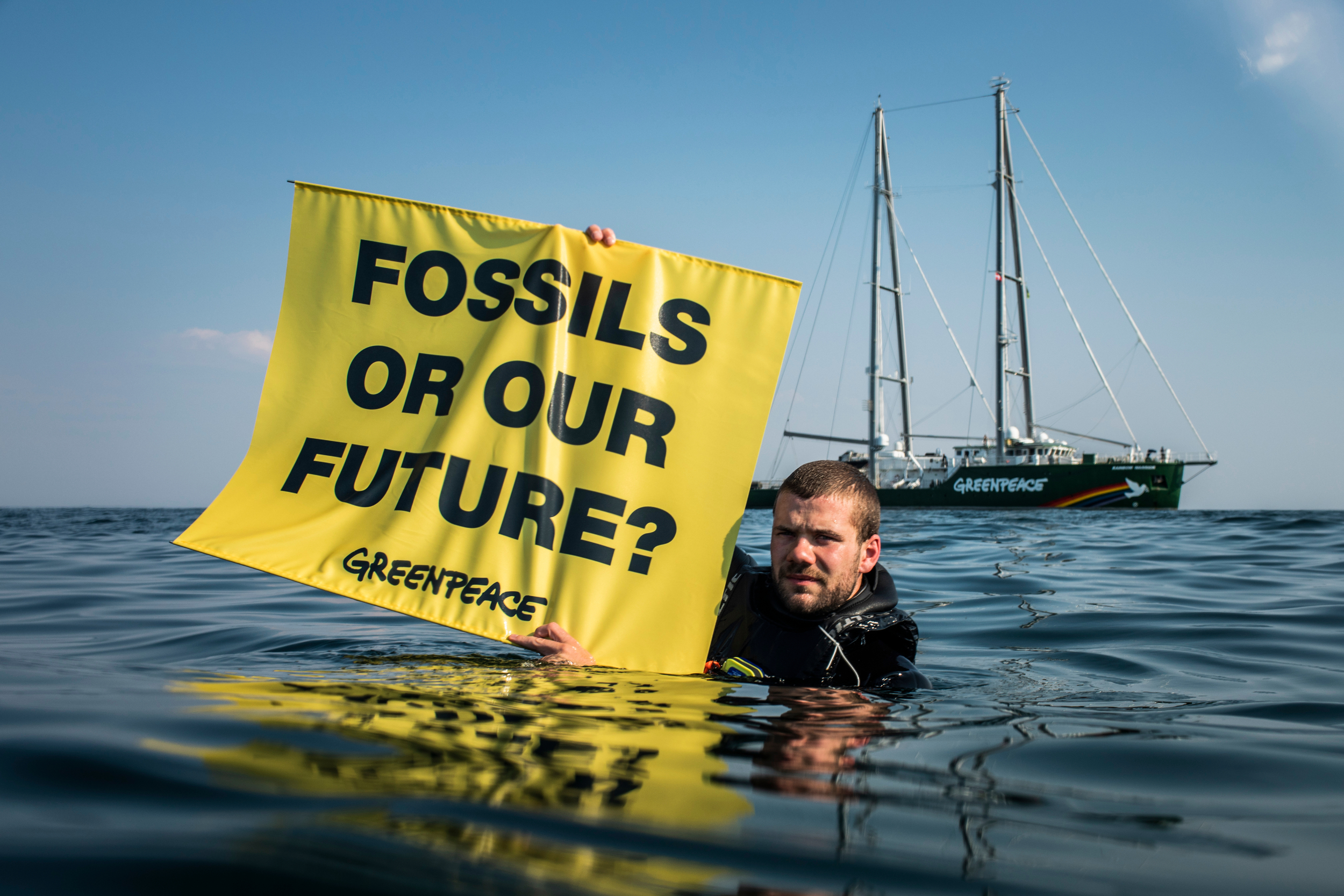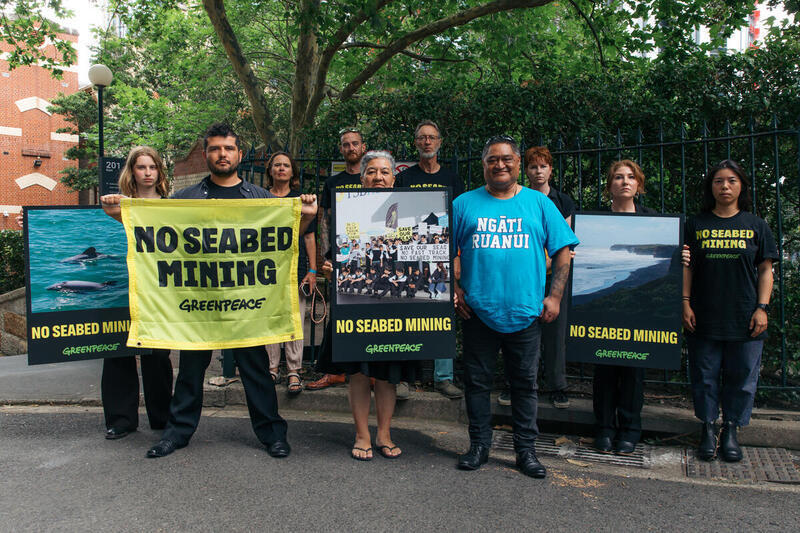The COP30 international climate talks taking place right now in the Brazilian Amazon are a defining moment for the globe and climate action. Outside the official negotiations people are taking power into their own hands.
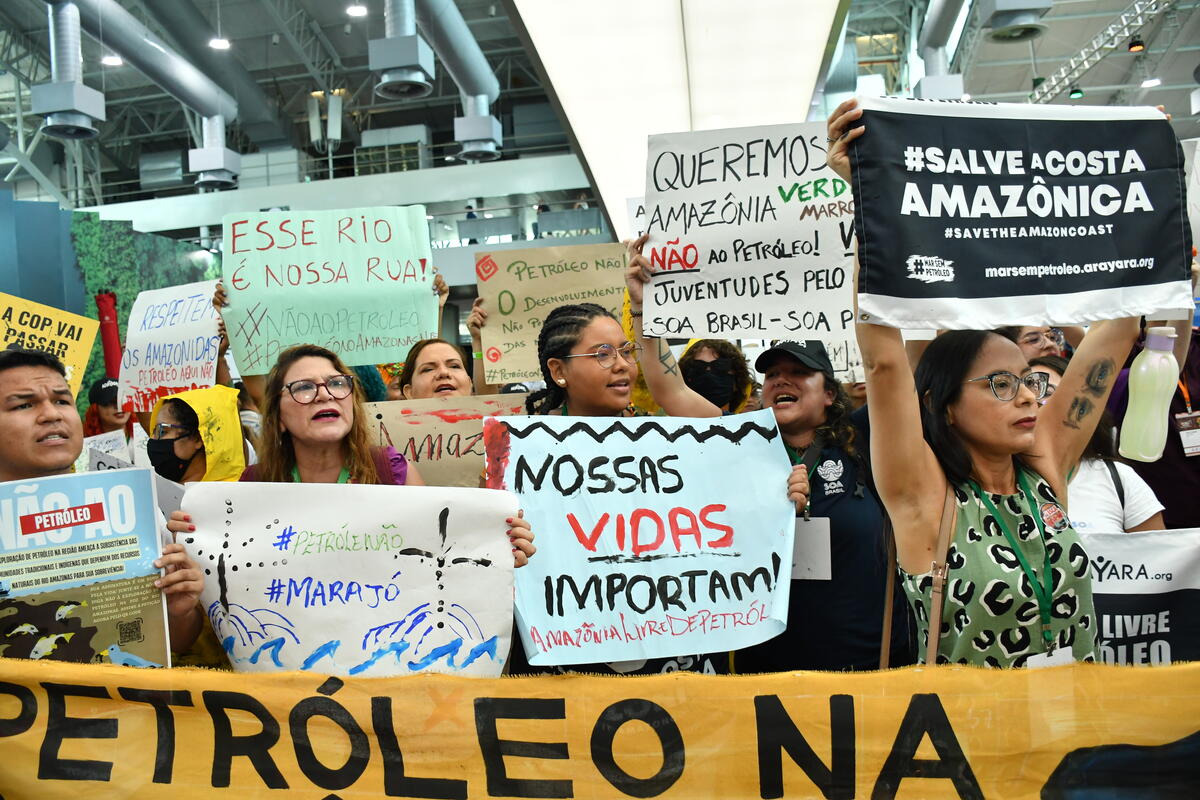
Inside the negotiations are representatives from the world’s governments, surrounded by lobbyists from fossil fuel and Big Agriculture corporations. So we must be cautious and sceptical about any promises made.
Yet at the same time Brazil’s COP30 is a huge event outside the official negotiations. It’s the first time in a few years that it has been hosted by a country which even allows protests and street marches. The previous three events were in countries that limited public protest and accountability, in Egypt, Dubai and Azerbaijan.
There are a multitude of reps and groups (including Greenpeace) present outside the talks hosting their own events in their own spaces. They’re representing all of us who have an interest in climate solutions and action.
On the rivers and streets of Belém, it’s a people’s summit for climate action
Beyond the official negotiations there are a lot more people on the outside who are speaking up for a just climate future.
The People’s Summit (Cupula dos Povos) is the central hub of resistance for everyone outside of the official negotiations to meet. It is the culmination of two years of organising aiming to strengthen the popular mobilisation and converge on shared goals.
On Saturday (15 Nov) tens of thousands took to the streets in a ‘global people’s march’. It was a chance for participants of grassroots movements from around the world to come together in their calls for environmental justice, focused on protecting people and forests.
The Greenpeace flagship the Rainbow Warrior is stationed in Belém during the conference. It took part in the Peoples Summit Flotilla of over 200 vessels led by indigenous peoples, local communities, activists, and allies, calling out inequality and environmental racism.
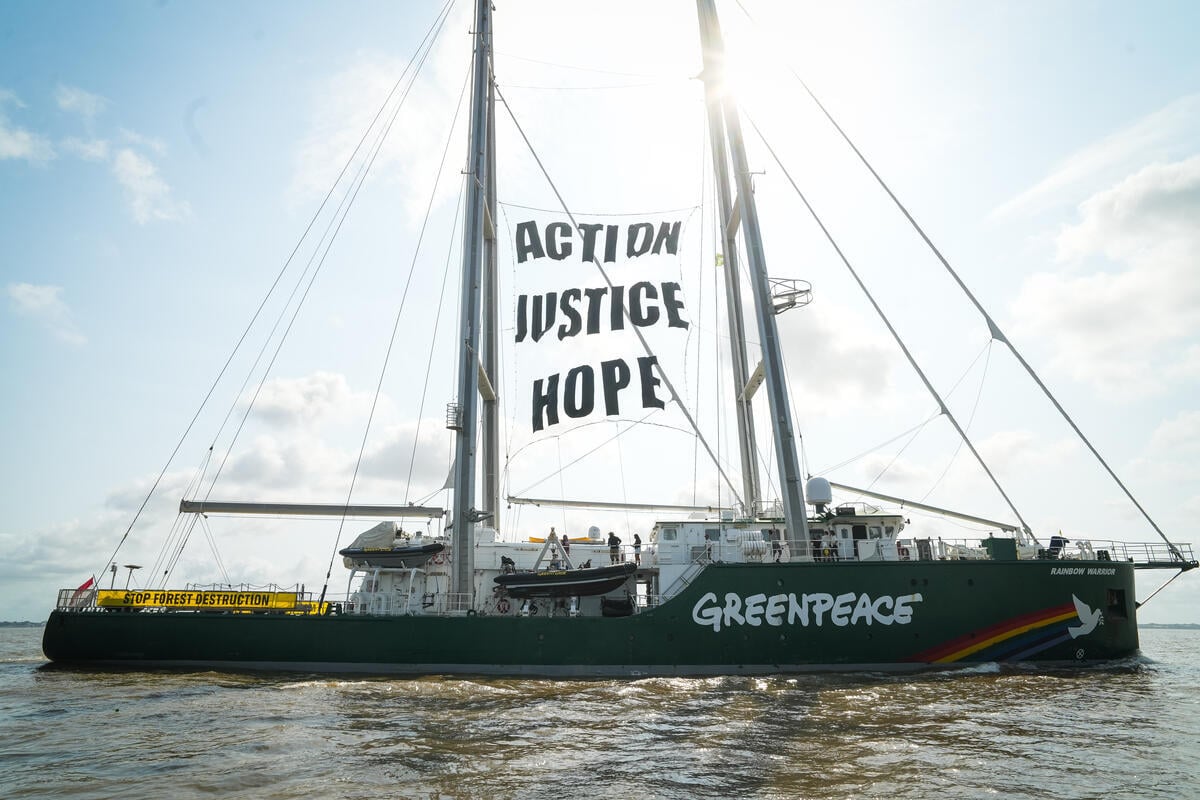
Civil society groups play an important role in pushing for and raising the ambition of negotiators. Activists, NGOs, and civil society are participating to demand more than promises.
Participants include researchers and scientists, youth activists, and small farmers from rural economies. There are famous Brazilian musicians attending, such as Gilberto Gil.
There are not only representatives of nations but also councils and regional leaders. The United States government has boycotted the talks but the governor of California, the USA’s most populous state, is heading an alternate delegation of more than 100 elected officials still committed to tackling the climate crisis.
Indigenous action is climate action
Indigenous groups from Brazil and around the world are taking a central presence at the talks. The Indigenous Village (Aldeia Cop30) is a hub for activities for education, debates and activism.
Watch: Kapahaka at the Indigenous Village
Indigenous peoples and local communities preserve ancestral knowledge that keeps international territories such as the Amazon alive.
Indigenous representatives are demanding their rights to be included in decision-making processes with access to resources so they can remain strong in their guardianship role.
Brazilian indigenous leaders are also calling for recognition of the ‘demarcation’ of Indigenous lands, as a climate policy. This means that traditional lands, threatened by growing exploitation by agribusiness and mining interests, must be recognised, protected and not eroded by gradual deforestation.
To support this Greenpeace International has released its new report for Forest Solutions. The findings show tangible examples of how Indigenous Peoples and local communities are key to protecting the Amazon, Congo Basin & Indonesian forests. The report calls for recognition, direct access to financing, as well as promoting indigenous-led approaches to conservation.
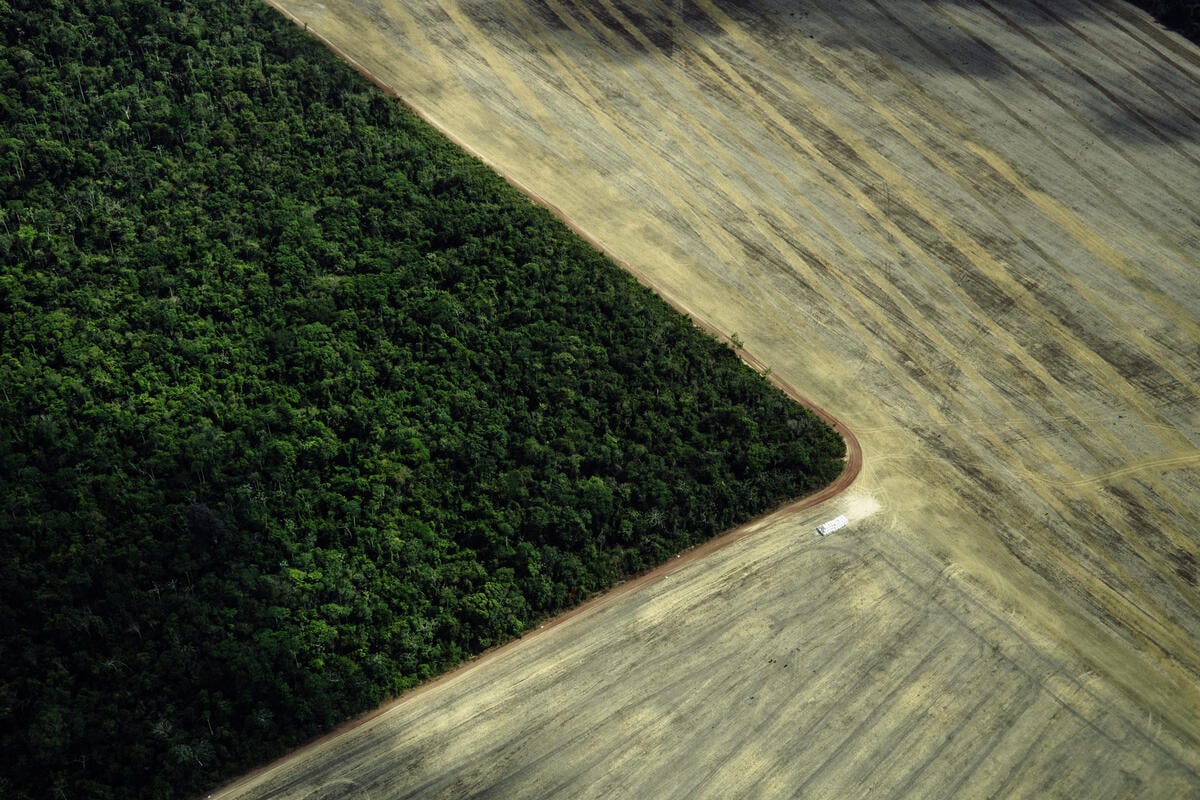
Climate finance
Designing a ‘just transition’ is essential when setting global climate policy that leaves no one behind. We need to work on climate solutions that don’t reinforce existing inequality and injustices.
One of the calls supported by Greenpeace at COP30 is for the scaling-up of public finance from developed countries, paid for by polluters.
There are some promising initiatives being announced. For example the Tropical Forest Forever Facility (TFFF), launched in Belém aims to raise $125bn to invest in bonds to protect the tropical forests for climate stability. The fund intends to help countries with large existing forested areas to keep them standing.
Another proposal civil society groups are powering is the Belém Action Mechanism (BAM), which would ‘accelerate, coordinate and support’ a low-carbon economy that looks after workers. It underlines the need for workers and communities to be in charge of decisions that affect their lives and livelihoods.
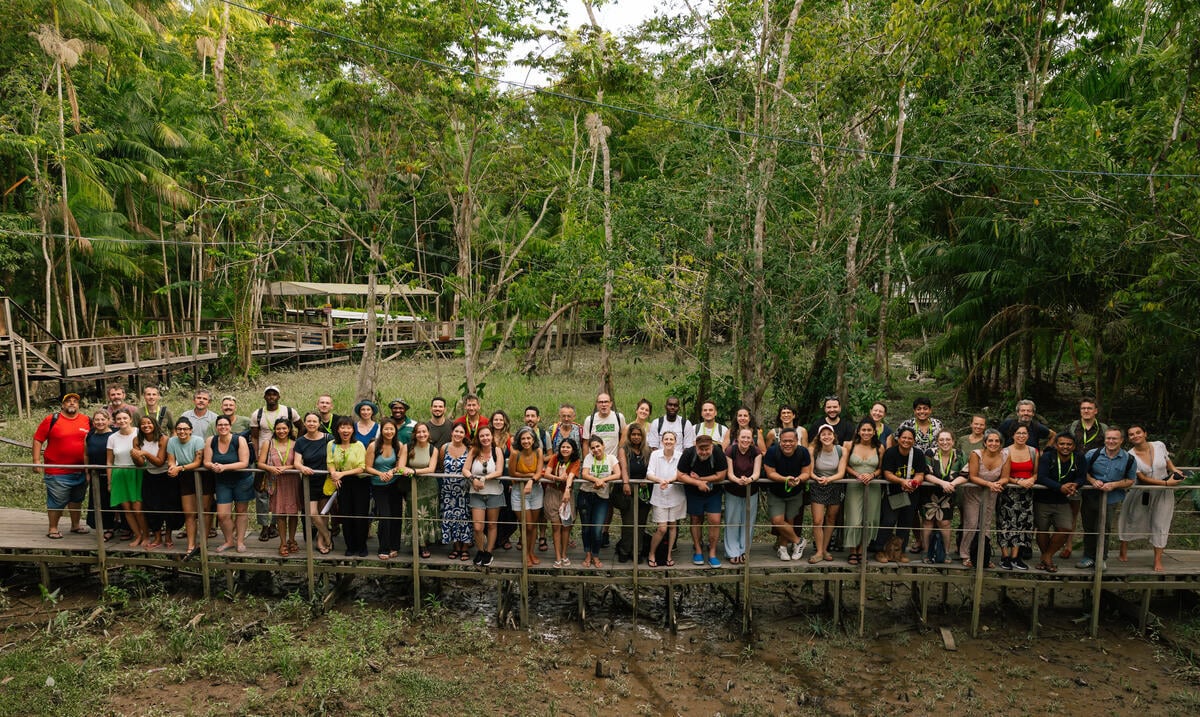
For millions, it is not a question of opportunity – it is a question of survival. Climate finance is, above all, a matter of climate justice.
Anna Carcamo, Climate Politics Specialist, Greenpeace Brazil
Scientists are ringing the alarms
The central pledge of the Paris Agreement was to limit global warming to well below 2°C and pursue efforts to limit the increase to 1.5°C. Ten years ago, most of the world’s countries signed up to this, and are still talking about it.
But humanity has set unprecedented global warming in motion. Because of the emissions already in the atmosphere the globe will go over 1.5 average warming in the next few years. In 2024 we breached the limit for the first time across a whole year.
This all makes it even more urgent to increase ambition and act to reduce emissions. Every incremental rise in the average global temperature will have escalating effects for the lives of future generations.
The UN’s latest annual report card, the NDCs Synthesis Report 2025, exposed the ‘1.5°C ambition gap’ by the world’s governments.
Greenpeace is calling for leaders to bridge the 1.5°C ambition gap with a roadmap to phase out fossil fuels, and an action plan to end deforestation by 2030.
This is why the potential for New Zealand to effectively limit the superheating gas methane is so crucial on the global stage.
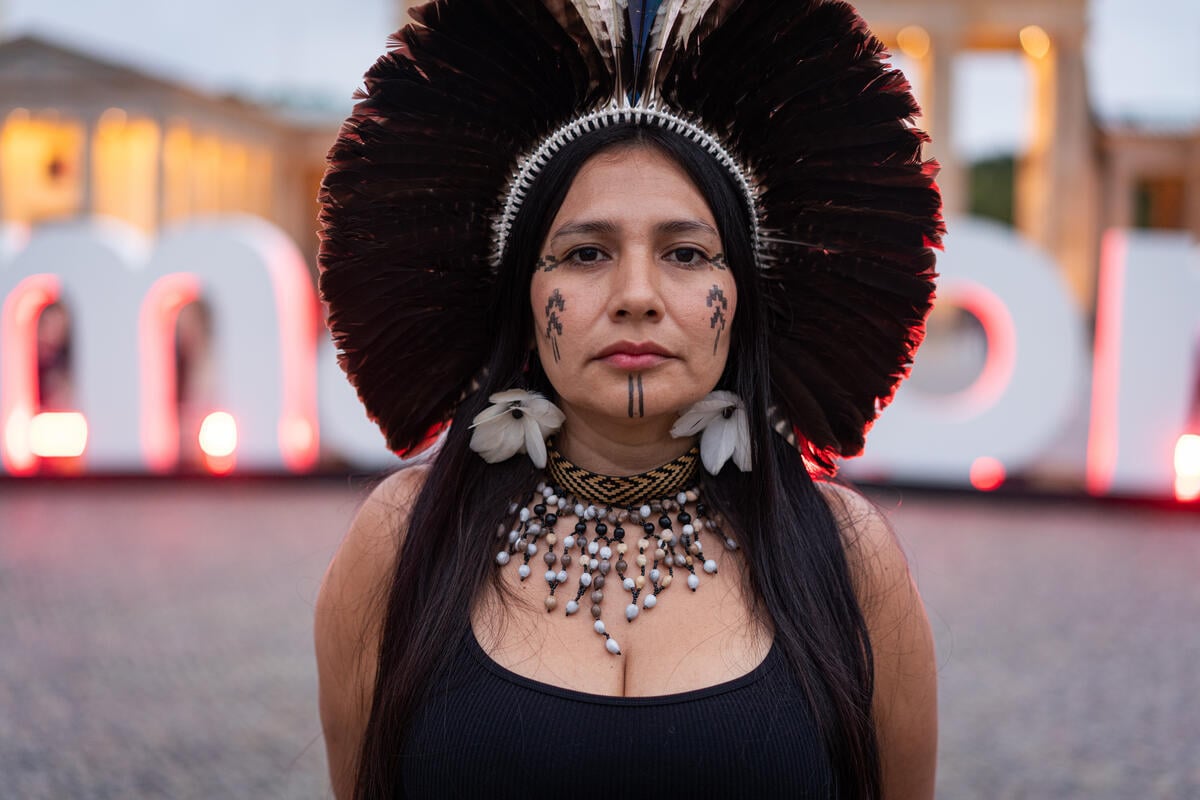
The Luxon government is living in a climate bubble
Our New Zealand Government is out of touch with the New Zealand public, embarrassing us on the world stage, and failing to meet the moment.
Most people in New Zealand agree the government should be doing more to tackle climate change. Yet the Luxon Government is doing everything it can to increase New Zealand’s contribution to global warming.
Cynically, at the same time as the world is talking about climate action, the Government is collecting feedback on what we all think of its plan to weaken emissions targets for agriculture, our largest climate polluter.
As a consequence, and unsurprisingly, New Zealand won Monday’s ‘Fossil of the Day’ award at COP30, presented by the Climate Action Network. This recognises the fact that the actions of our Government are now working against goals to reduce climate emissions.
Alternatively speaking
COP30 on its own won’t shift the dial on international progress, but it’s a fulcrum for sharpening international attention on climate action. It’s an opportunity for small and big conversations on how to shift massive international coordination towards decarbonisation.
It will be the result of multiple actions and conversations that help communities coordinate around this goal. COP30 provokes conversations that extend beyond Brazil with many alternative COP events. Civil society, iwi, business people, and local communities are pressing ahead with action.
For example, AlterCOP is an event that aims to foster collaboration among corporate professionals, academics, public, and policymakers to inspire action. It’s also holding events in Aotearoa.
New Zealand is the location for important climate conversations and action, from this month’s Earth+ Leaders’ Summit in Christchurch to direct action by groups to save the Denniston Plateau from coal mining.
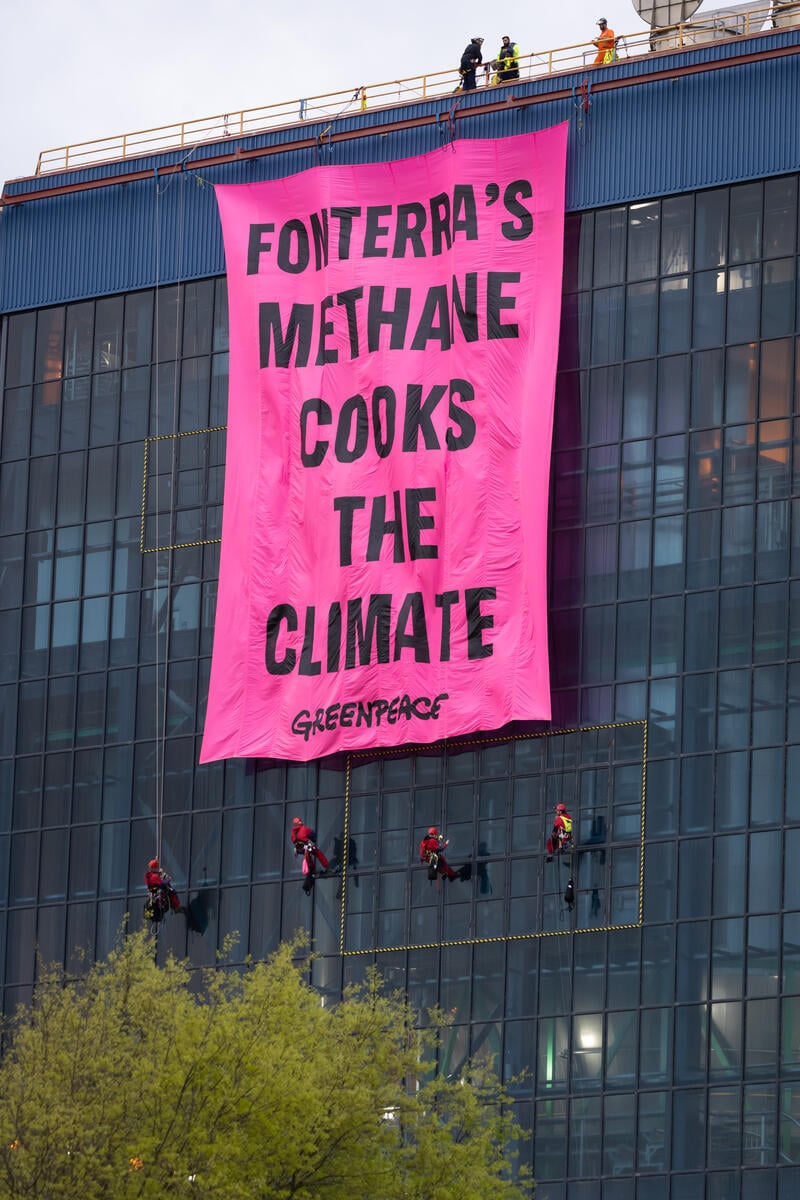
The climate actions of small countries are crucial
Loud voices at COP30 give us a chance to hear the concerns of the rest of the world, beyond the headlines.
By ‘rest of the world’ I mean, the majority! What we may call the ‘developing world’ is really the global majority – where most people live.
We often hear the line ‘we’re just a small country, what difference can we make?’ As if we’re waiting for someone else to give us permission to take a step forward.
Here in Aotearoa we’re one of many small nations, with an outsized opportunity to contribute more to climate action. We’re relatively well off, with relative freedom and a small population.
The dairy sector is our nation’s largest emitter – it could be our greatest contribution to cutting emissions and dramatically slow global heating. By cutting our emissions of super heating methane we have a huge contribution to make.
Our ambition, our ideas and ability to coordinate with the peoples of other nations could make a huge difference to the future of the world. If not us, then who?
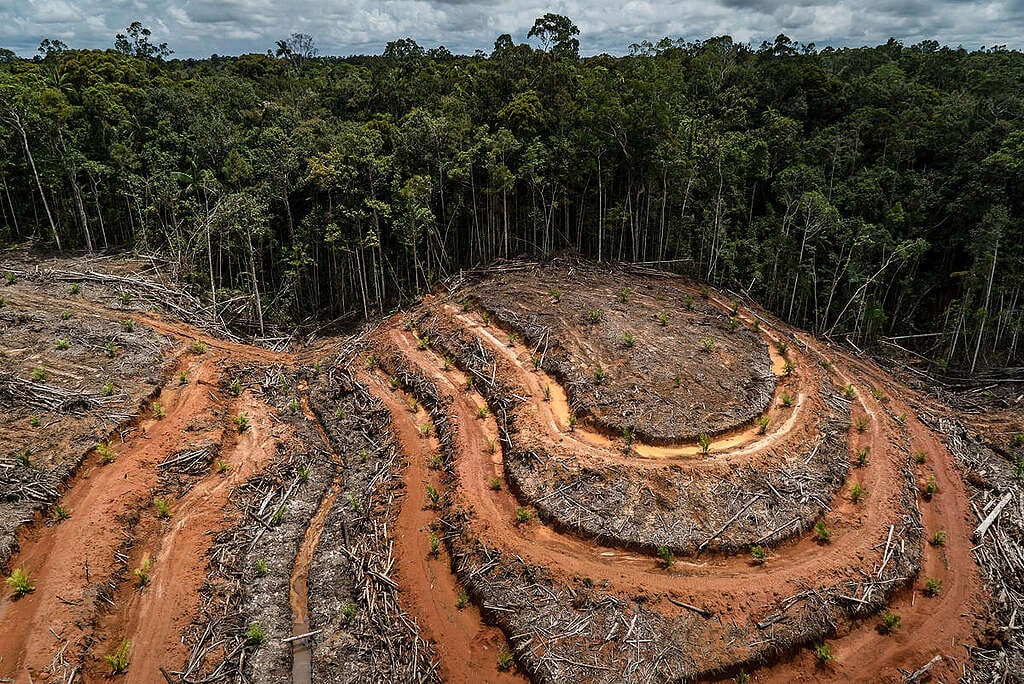
Call on Fonterra to end the use of rainforest-destroying palm kernel on its farms.
Sign the petition
